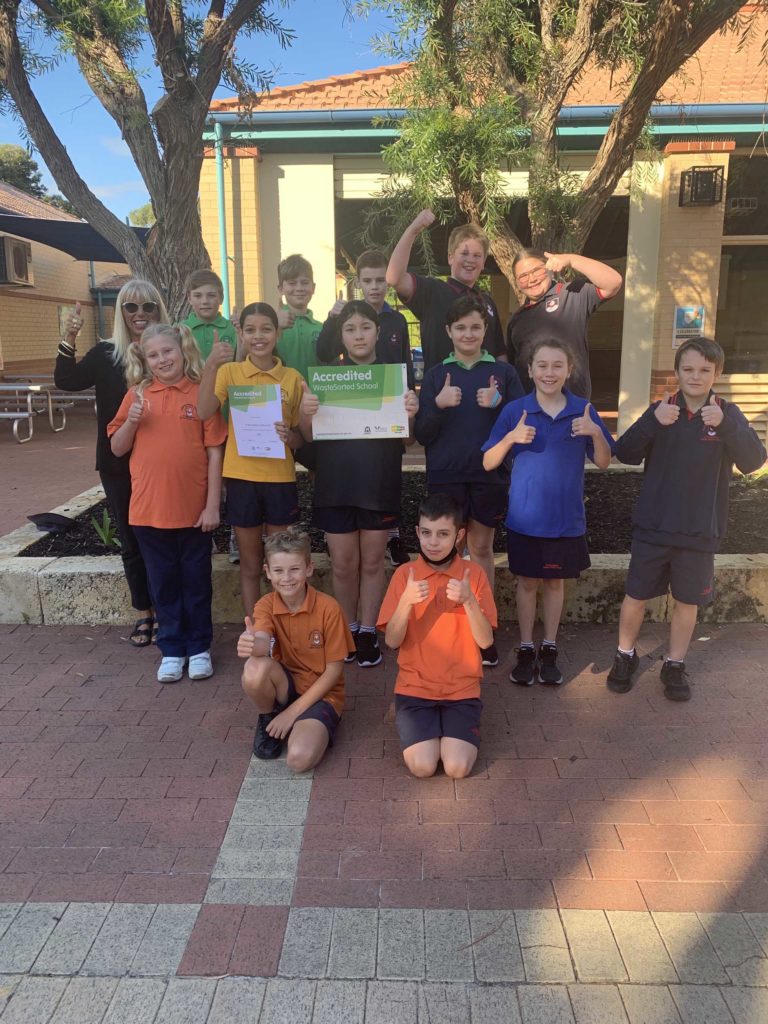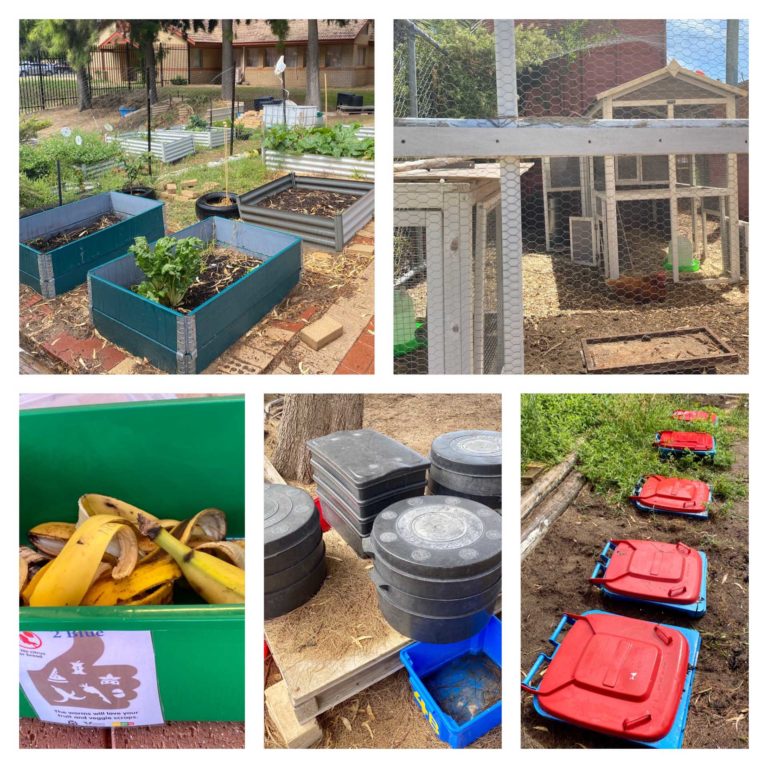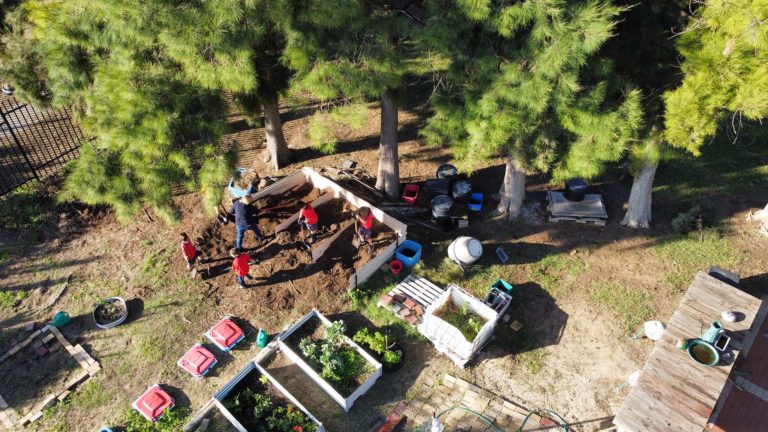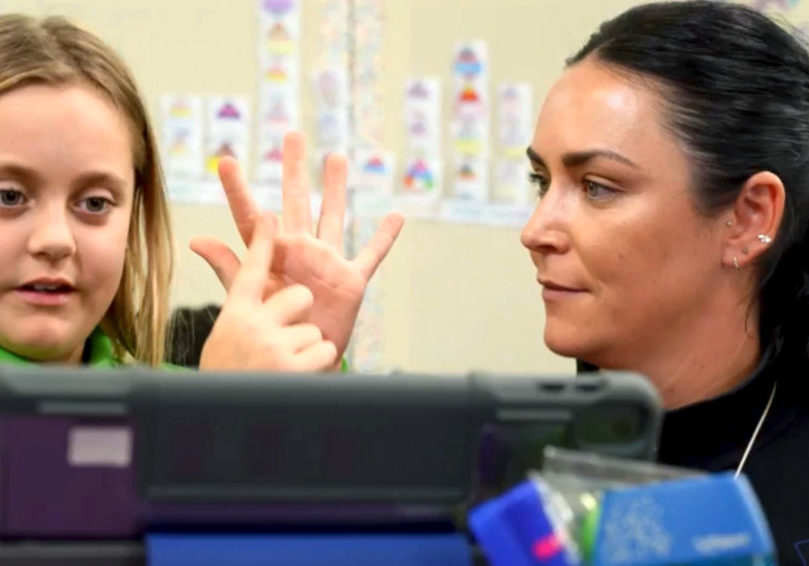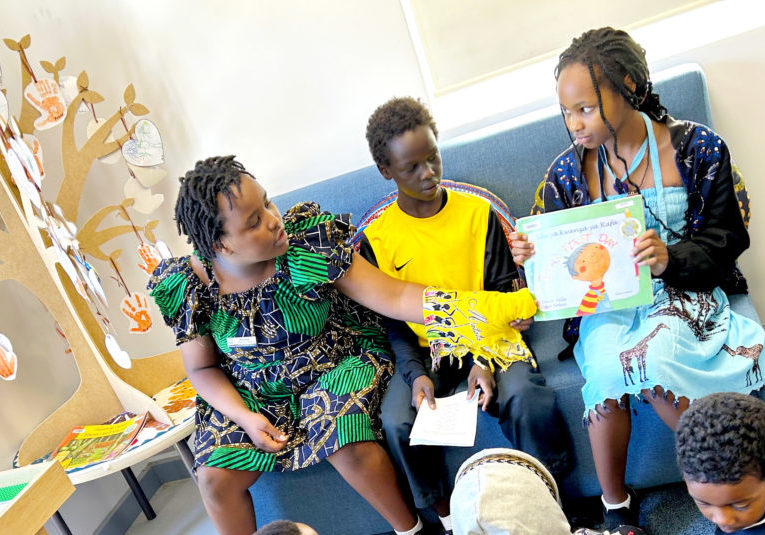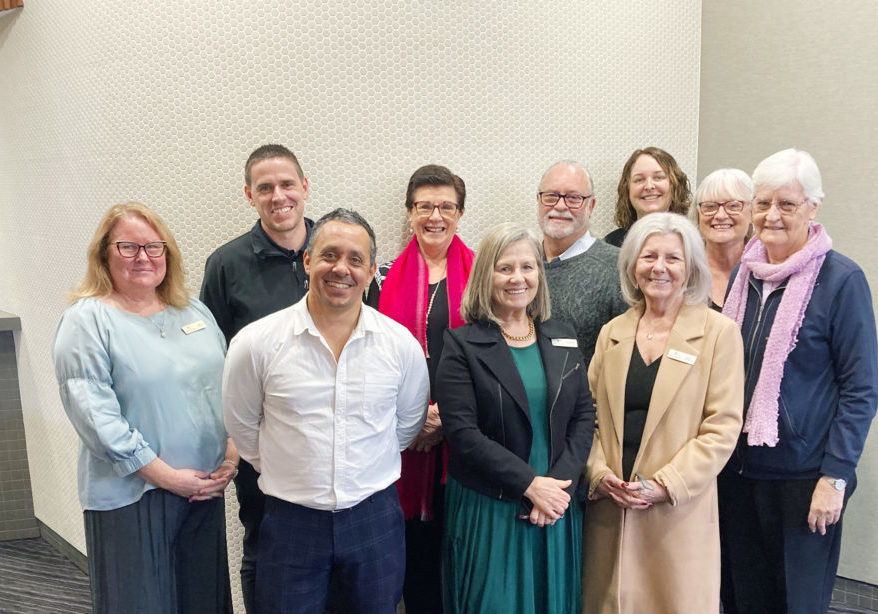Students get serious about sustainability
07 June 2022
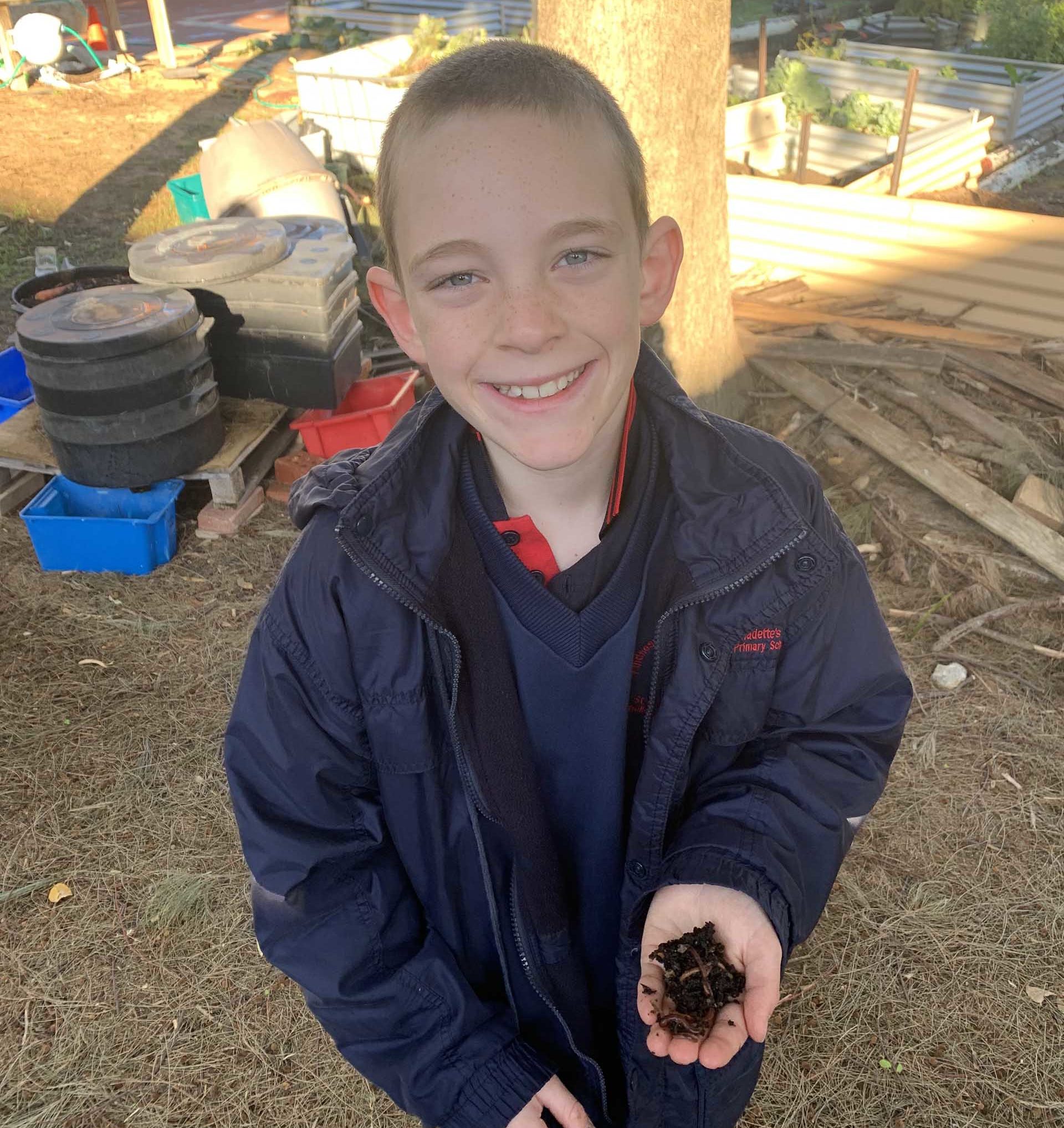
Eight environmentally conscious Catholic schools have been awarded grants to create more sustainable practices, including expanding community worm farms, chicken coops and composting systems to reduce landfill waste.
The CEWA schools are among 32 schools to share in $109,000 as part of the State Government’s 2022 WasteSorted Schools grants.
The program, previously known as Waste Wise Schools, provides funding for school infrastructure and initiatives that avoid and recover school waste, such as paper and cardboard, food waste, single-use packaging and general recycling.
Accredited WA schools can apply for grants of up to $5,500.
Among the CEWA schools to win the latest grants were St Simon Peter Catholic Primary School in Ocean Reef, St Bernadette’s Catholic Primary in Port Kennedy, Mazenod College in Lesmurdie and St Thomas More Catholic Primary School, Margaret River.
St Simon Peter Catholic Primary School Sustainability Leader Louise Bonciani said the school had embedded many practices to support its sustainable teachings.
“We are fortunate to have a large thriving garden with a planter box for every class. Each week the Year 5 students come to the garden to assist with gardening, feeding the chickens and aerating the compost bins,” she said.
“Our compost scraps alone save over one tonne of rubbish from landfill yearly.”
In addition, the school has three recycling hubs where students sort, collect, deliver and send off recyclables such as bottle caps, bread tags and ring pulls.
Our compost scraps alone save over one tonne of rubbish from landfill yearly.”
Louise Bonciani, St Simon Peter Catholic Primary School sustainability leader
St Bernadette’s Catholic Primary School Sustainability Coordinator Ethel Murphy said the grant would help the school to continue its sustainability journey by purchasing more worm farms and composting equipment.
The grant will also fund colour coded bins for classrooms as part of a Containers for Change Faction Challenge, with funds raised to be donated to the school parish.
“After reviewing the results of a waste audit at the start of the year, our main focus is to minimise the waste and litter our school is producing as well as finding better and more sustainable ways to organise the waste that we do end up with,” Ms Murphy said.
“This year we have introduced Nude Food Lunchbox challenges and we are already noticing a huge reduction in the amount of waste that finds its way into our bins.
“We collect fruit scraps for our worm farms and our school chickens, and of course the chickens then help us to close that sustainability loop by rewarding us with ‘delightful’ fertiliser for our school vegetable gardens.
“The produce from our gardens, including the precious worm wee, is eagerly purchased by our supportive parents, with the proceeds being put back into the upkeep of the garden.”
Sally Budge, from Mazenod College, said the grant would help fund a mobile “subpod” type worm farm that would be used at lunchtimes near the canteen to show students what can go into the worm bins.
“By having a mobile system, the idea is that the students would have a regular reminder of what can be done with organic waste and what exactly is classified as organic waste,” she said.
“The subpod forms part of a mobile garden bed which shows the boys the benefits that soils obtain from worm farming and organic waste recycling.”
Mazenod is also organising a WasteSorted Week called ‘Towards Net Zero’ later this year. During that week, all Year 8 classes will participate in a worm shed incursion, which will be partially funded by the grant.
Education and Training Minister Sue Ellery said the schools were actively making a difference by educating students about how to look after the environment.
“We know young people are passionate about environmental causes and these grants help students to find some practical solutions to complex issues,” she said.
Applications for the next round of grants can be made between 18 July and 30 August. Visit https://www.wasteauthority.wa.gov.au/wws for details.
WasteSorted Schools Grants to CEWA schools
Mazenod College: $3,100, to purchase worm farms and worm farm infrastructure.
Mel Maria Catholic Primary School: $2,120, to collect food waste and process it in compost bins and worm towers, and provide soft plastic recycling centres.
Mother Teresa Catholic College: $4,720, to purchase recycling and compost bins, wicking beds and gardening equipment to enable students to work on the worm farms, compost bins and garden beds.
St Simon Peter Catholic Primary School: $4,160, to purchase collection buckets with lids, compost bins and gardening equipment, including gloves, a compost aerator, compost conditioner, proper storage and additional worms.
St Bernadette’s Catholic Primary: $3,160, to purchase paper/cardboard and general waste bins by setting up a faction challenge to support the P&C’s Containers for Change initiative, and more composting and worm farm equipment.
St Elizabeth’s Catholic Primary School: $4,700, to purchase recycling bins, a compost tumbler, garden maintenance equipment, more worm farms, a greenhouse for seed raising and create more vegetable gardens and fruit tree spaces.
St Jude’s Catholic Primary School: $3,900, to create a sustainable garden so produce can be used in the school canteen and for ‘Crunch n Sip’, with any waste to be composted in the worm farm and the worm leachate used to fertilise the garden.
St Thomas More Catholic Primary School: $1,800, to provide waste management education and to install a FOGO bin, a general waste bin, recycling bins and paper recycling bins.


